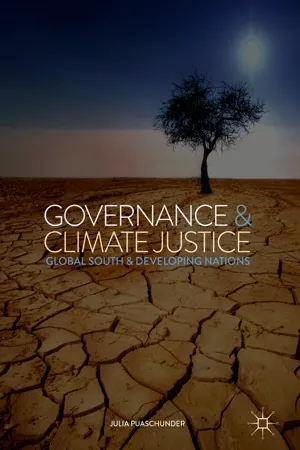Based on the idea of climate justice, the following part theoretically outlines the current societal demand for eternal equity. Portraying intergenerational equity as a natural behavioral law strengthens the legal case for codifying intergenerational fairness on a global basis and contributes to interdisciplinary behavioral law and economic models on contemporary climate justice predicaments.
1.1 Climate Justice as Intergenerational Equity Imperative
The age of economic progress was now. The post-WWII economic boom heralded golden years of socio-economic advancement and economic capital growth outpacing every measure previous ages had known. Though looking back to an epoch of enormous economic progress in the twentieth century, the improvement of living conditions seemed to be threatened from the turn of the millennium on. The era of globalization, featuring complex interconnections and transactions faster than ever before in history, appeared to hold emergent systemic risks (Centeno & Tham, 2013; Sandbrook, Edelman, Heller, & Teichman, 2007). What happens in one part of the world today has impacts around the globe (Foley, 2009). The global interconnectedness imposing dangers creates a need for framework conditions securing from negative consequences emerging from the new web of social , ecological and fundamental transfers on a grand scale (Klein, 2014).
In the eye of climate change and ecologic sustainability, the world appears more vulnerable than ever before. Future generations will face declining biodiversity and ecological environmental changes in the wake of climate change. Capitalism’s myopic short-term profit systematically ignores the broader and longer-ranging implications of its actions and externalities, which results in irreversible ecological destruction (Boscov-Ellen, 2015). Contemporary capitalism raises ecological ‘limits’ to growth and environment concerns in the eye of unsustainable resource consumption and increasing human-made climate change (Zaretsky, 2015). In 2010, we hit the highest energy resource consumption in the 40-year recording of sustainability. Climate change is going to be the greatest human challenge of the twenty-first century touching on all human rights given the potential massive and widespread impacts creating irreversible lock-ins for future generations and injustice over time. The destruction of the environment is the most sustainable peril of globalization.
This unprecedented intergenerational kink heralds an overall call for intergenerational equity—the fairness to provide an at least as favorable standard of living as enjoyed today. As we realize that our children may not have the same chances as we do, we must strive for global equity over time. The global challenge is thereby to find sustainable, qualitative economic growth in harmony with human rights of sustainable development over time.
The idea of eternal equity addresses justice over time. As an implicit contract and transfer in-between living and future generations, intergenerational equity not only reduces unfairness for future world inhabitants who are born in less favorable environmental conditions than their parents but also ensures future infrastructure, equal opportunities over time and constant access to social welfare for the youth. Intergenerational equity grants a favorable climate between generations and averts frictions arising from austerity plans, diminishing social welfare standards and declining environmental prosperity. Intergenerational equity avoids discriminating against future generations on the basis of remoteness of the time at which they will live.
While intergenerational equity is as old as humankind, climate change has put a new stance on future generations (Fraser, 2014; Nafeez, 2013). In light of a warming globe, intergenerational equity is an urgent topic of concern that opens windows of opportunity to implement ecologic sustainability (Magdoff & Foster, 2010). The complex challenges ahead will require heightened attention to future generations’ well-being. In the eye of an unprecedented intergenerational equity kink, it has become economically efficient to think about the next generation and future world inhabitants’ living conditions and demand foresighted governance.
While the wish for intergenerational equity has sparked, we currently lack a codified legal framework on intergenerational fairness as well as an economic understanding of feasible intergenerational equity models that accurately pay attention to future generations. To measure intergenerational equity, we will have to estimate future socio-economic developments around the warming globe. Intergenerational equity will require discounting of future events by politicians, policy makers and private individuals who will have to factor in future orientation and social responsibility in current decisions (Puaschunder, 2019).
Future world inhabitants must be put into the focus of today’s choices by shifting the current wealth of the elderly to save for future generations and put sustainable governance in place. We will have to curb our consumption rates to conscientiously transmit the earth’s resources to future generations or find alternatives of financing climate change abatement.
The outlined intergenerational equity constraints are complex and their solution interdependent. As the present crisis has exposed the weaknesses of ...
